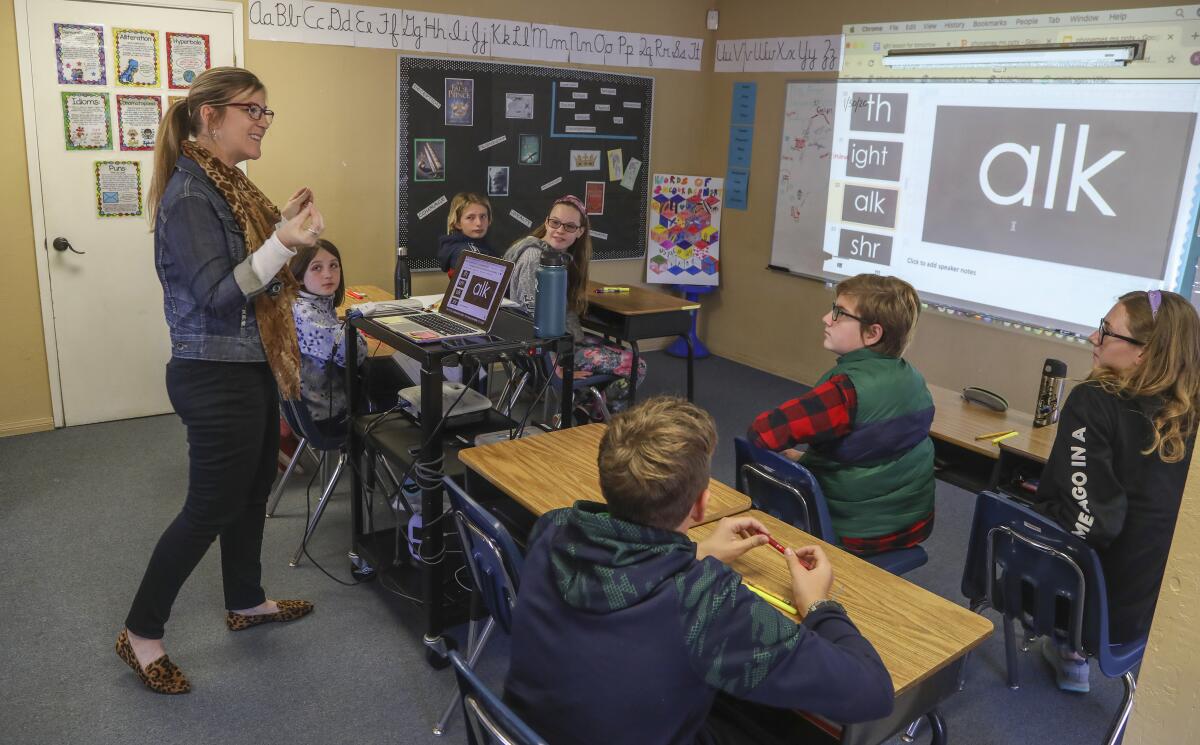Letters to the Editor: Phonics gets kids over an early reading hump. What happens after that?

To the editor: English is a phonetic language, so as soon as children learn letters and sounds, they can start to write simple messages. Most people go on to write well enough for practical purposes, while others go on to become poets, novelists or journalists for the Los Angeles Times. (“The science of reading works. California should require it,” editorial, Dec. 19)
There is a vast difference in levels of competence among adults. Phonics has little or nothing to do with it. It is the same for reading.
Yes, effective instruction in phonics and other essential reading skills does help a child learn to read by age 8 or 9. The “science of reading” refers to beginning reading. After that, individuals develop the same differences in competence that we see in writing. Some become excellent readers while others stay at a fourth- or fifth-grade level for the rest of their lives.
How do we narrow this gap? Now, that is a question for the great universities in the world.
Reading and writing are complex mental processes akin to thinking. Let’s give these human achievements the respect they deserve.
Linda Mele Johnson, Long Beach
The writer is a former reading teacher and the author of a book on teaching young children to read.
..
To the editor: Kudos to The Times for promoting the science of reading. Along with curriculum changes and teacher training, we need buy-in from the university systems that train teacher candidates.
In my doctorate dissertation research, I found that 60% of education professors continued to ignore the science of reading in favor of outdated whole language and balanced literacy methods.
Their ignorance or disregard of the science of reading produces new teachers unprepared to address the needs of their most vulnerable students.
Suzanna Bortz, Laguna Niguel
..
To the editor: Your articles and editorials about using phonics in instruction do not address the purposes of reading and the goal of parents and educators to help children become lifelong readers. The values of reading are enjoyment, enlightenment and knowledge.
Of course phonics is essential for teaching beginning reading. Once a child is able to “crack the code” by learning to sound out words and the rules of grammar and punctuation, it is the responsibility of educators and parents to encourage children to comprehend the text and discover the joy of reading.
Let’s not lose sight of the forest by focusing on the trees. While teaching phonics and beginning reading, it is essential that we emphasize the purposes and beauty of reading.
Cynthia Crisp, Cerritos
..
To the editor: Along the lines of using phonics to teach children how to read, I would observe that a large number of children in California schools have homes where English is not the first language. By having teachers listen to children sound out words and give corrections, students are learning how to speak English, which is as much to their benefit as learning to read English.
Mind you, I have nothing against children who are not native speakers of English, be they from Chile or Lebanon. What I do want is for children to be able to better navigate the society in which they live.
Michael Lampel, Granada Hills



